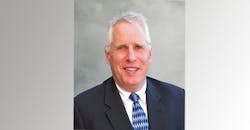The Power of Persistence
As Electrical Wholesaling’s editors close up another editorial year and get ready to start celebrating the magazine’s 100th anniversary year in 2020, I have been thinking about the history of the electrical industry and the roles several of the industry’s greatest inventors played in it.
Over the years I have enjoyed learning about Thomas Edison and Nikola Tesla, and I am currently reading Edmund Morris’ biography of Edison. While you can’t put him on the same level as Edison and Tesla, Elon Musk has made important contributions to the industry, too, with his Tesla electric vehicles and photovoltaic roof tiles.
I am starting to lose track of all of Musk’s other inventions. Earlier this year, one of his endeavors, Boring Co., won a $48.7 million contract to build an underground transit system to shuttle visitors around the Las Vegas Convention Center. It’s the same company that proposed a billion-dollar, 18-mile tunnel system from O’Hare Airport to downtown Chicago to alleviate traffic congestion.
Two of his first businesses were Zip2, an online city guide for newspapers he and his brother sold to Compaq for $307 million, and X.com, which eventually became Paypal.
Musk also recently launched a new line of glass solar roof tiles, is busy with his Tesla electric vehicle factory, and has had several successful rocket launches. Most recently, Musk was in the news with his new electric Cybertruck pickup. The launch didn’t go well. When he had an assistant throw a steel ball at the truck’s “Tesla Armor Glass” to prove it was unbreakable, the window shattered.
Musk may not go down in history as one of the great inventors. But give him credit for not being afraid to test the limits of every industry he chooses to enter and for not being afraid of failure. As he once reportedly told employees at one of his businesses, “Failure is an option here. If things are not failing, you are not innovating enough.”
In that sense, he is very similar to Thomas Edison, who is said to have carbonized 6,000 different types of plants and vegetables in search of a filament for his incandescent lamp. He reportedly said about the search, “I haven’t failed — I’ve just found 10,000 ways that won’t work.”
The two men also are similar in their genius for developing inventions for an insanely wide variety of industries. Edison’s incandescent bulb, his development of the first utility power station, and inventions of the phonograph in 1877 and kinetograph for motion pictures made him famous.
But he also had 1,092 other U.S. patents and spent much of his later life consumed by a quest to develop a source of rubber in the United States so the company would not have to import it. He also had many patents involving cement, and dreamed of ways to build all sorts of cement furniture and homes. While those dreams didn’t quite work out, his cement was used in the construction of the original Yankee Stadium.
Edison had a tortured relationship with another electrical genius, Nikola Tesla, in what has come to known as the “War of the Currents.” Edison was committed to direct current (DC) and had patents for inventions utilizing DC, while Tesla had patents for products utilizing AC technology, and worked with George Westinghouse to develop AC power systems.
Tesla, who also worked briefly for Edison, built the foundation for many of today’s wireless communication technologies and developed some early forms of fluorescent and neon lighting. He had some notable quirks, including a love for pigeons, a dislike for women’s jewelry and a habit of wearing white gloves at every meal. But Tesla had the soul of an inventor, as you can tell from the following quote:
“I do not think there is any thrill that can go through the human heart like that felt by the inventor as he sees some creation of the brain unfolding to success. Such emotions make a man forget food, sleep, friends, love, everything.”
It’s a quote that still rings true today, particularly with the industry’s inventors doing work with LEDs and IoT-enabled products and other digital technology, as well as with labor-saving products. The spirit of invention is alive and well in the electrical market.
